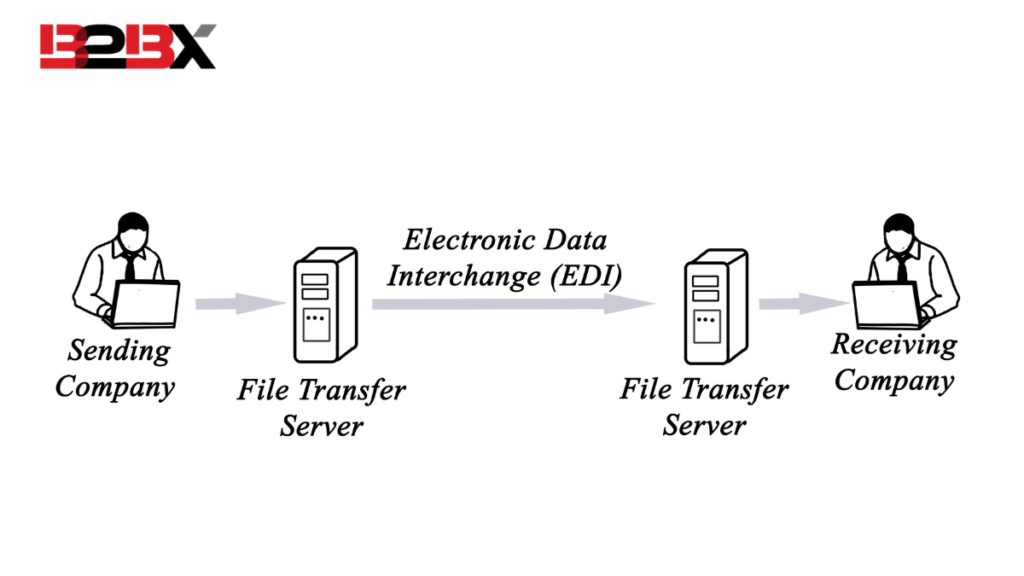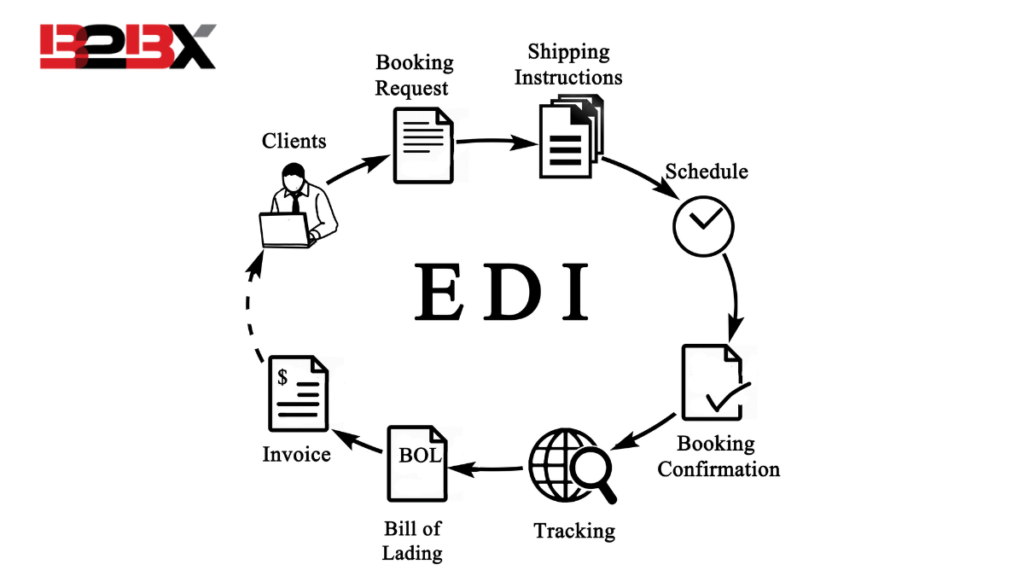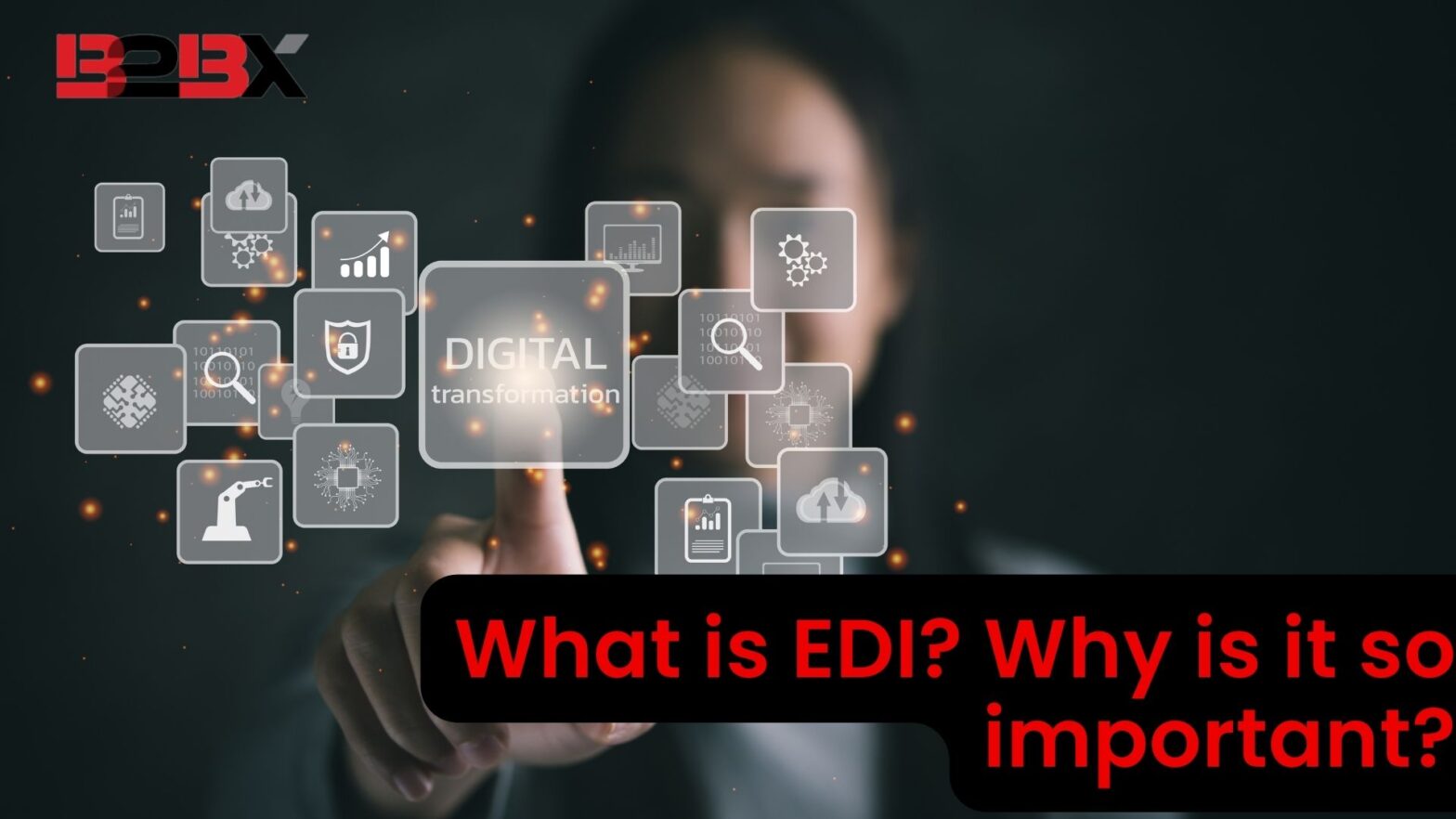What is EDI and What is its Importance
In the landscape of modern commerce, where speed, accuracy, and efficiency reign supreme, Electronic Data Interchange (EDI) emerges as a fundamental enabler of seamless business transactions. From its inception to its present-day sophistication, EDI has transformed the way organizations exchange critical information, streamline operations, and forge collaborative partnerships. In this comprehensive exploration, we delve into the intricacies of EDI, unraveling its essence, tracing its evolution, dissecting its functionalities, and elucidating its profound importance in the fabric of contemporary business.

Unveiling the Benefits and Advantages of EDI
The adoption of EDI yields multifaceted benefits to organizations:
- Operational Efficiency: By automating data exchange processes, EDI reduces the time required to complete commercial transactions, fostering heightened operational efficiency and curbing administrative costs associated with manual document processing.
- Data Accuracy: The automation of data entry processes minimizes human errors, enhancing data accuracy and mitigating risks of errors and discrepancies in commercial transactions.
- Enhanced Visibility: EDI empowers organizations with heightened visibility into commercial operations, enabling real-time tracking and monitoring of transactions. This facilitates informed decision-making and swift responsiveness to evolving commercial dynamics.
- Sustainability and Waste Reduction: By obviating the need for paper documentation and manual communications, EDI contributes to environmental sustainability by curbing resource consumption and waste generation.
- Enhanced Competitiveness: Organizations leveraging EDI can fortify their competitive edge by streamlining commercial processes, cutting costs, and amplifying customer satisfaction. This enables them to better position themselves in the market and swiftly adapt to evolving consumer and market demands.
- Flexibility and Scalability: EDI epitomizes flexibility and scalability, effortlessly adapting to evolving business exigencies as organizations expand and evolve. It adeptly handles variable data volumes and seamlessly integrates new functionalities and business partners.
Understanding EDI: An Introduction
Electronic Data Interchange, abbreviated as EDI, represents a structured method for electronically exchanging business documents between disparate computer systems. These documents encompass a myriad of commercial transactions, including purchase orders, invoices, shipping notices, and more. At its core, EDI standardizes the format of these documents, facilitating seamless communication and automated processing across diverse organizational boundaries.
The Evolution of EDI Standards
The genesis of EDI can be traced back to the 1960s and 1970s, when early pioneers in electronic communication endeavored to devise standardized protocols for data interchange. Over time, this nascent endeavor gave rise to a plethora of EDI standards, each tailored to specific industries, regions, or transaction types. Among the most prominent standards are ANSI X12, EDIFACT, and XML, each serving as a blueprint for structuring data elements, segments, and transactions in a uniform manner.
Unraveling the Functionalities of EDI
At its essence, EDI operates as a conduit for the seamless exchange of structured data between trading partners, suppliers, distributors, and customers. The process begins with the creation of standardized EDI documents within the sender’s system, wherein data is encoded in accordance with predefined formats and specifications. These documents are then transmitted electronically to the recipient’s system, where they undergo parsing, validation, and integration into internal workflows.

The Significance of EDI in Modern Commerce
The importance of EDI in contemporary commerce cannot be overstated, as it underpins a myriad of critical business processes, including procurement, logistics, inventory management, invoicing, and order fulfillment. By automating the exchange of transactional data, EDI streamlines operations, accelerates decision-making, and minimizes errors inherent in manual data entry and processing.
The Advantages of EDI Adoption
The adoption of EDI confers a multitude of benefits upon organizations of all sizes and industries. Chief among these benefits are:
- Operational Efficiency: EDI streamlines business processes by automating data exchange, reducing processing times, and eliminating manual intervention.
- Enhanced Accuracy: By minimizing human error and standardizing data formats, EDI enhances the accuracy and reliability of transactional data.
- Cost Savings: The automation and efficiency gains afforded by EDI translate into tangible cost savings across the supply chain, from reduced administrative overhead to optimized inventory management.
- Improved Partner Relationships: EDI fosters stronger relationships with trading partners, suppliers, and customers by facilitating seamless communication, enhancing transparency, and promoting collaboration.
- Regulatory Compliance: In regulated industries, EDI helps ensure compliance with industry standards, government regulations, and data security requirements governing electronic transactions.
- Scalability and Adaptability: EDI solutions are inherently scalable and adaptable, capable of accommodating evolving business needs, expanding trading partner networks, and integrating with emerging technologies.
EDI in the Digital Era: Emerging Trends and Technologies
In the age of digital transformation, EDI continues to evolve, driven by advancements in technology, changing market dynamics, and evolving customer expectations. Emerging trends such as cloud-based EDI solutions, API-driven integrations, and blockchain-enabled transactions promise to further enhance the capabilities and reach of EDI in the digital era.
The Role of EDI in Supply Chain Management
In the realm of supply chain management, EDI serves as a linchpin for orchestrating seamless collaboration and coordination among stakeholders across the value chain. From demand forecasting and inventory optimization to order fulfillment and logistics management, EDI streamlines critical supply chain processes, enabling organizations to respond swiftly to market demands and customer expectations.
EDI and Business-to-Business (B2B) Integration
In the realm of business-to-business (B2B) integration, EDI plays a central role in facilitating interoperability, standardization, and data exchange between trading partners. Whether in manufacturing, retail, healthcare, or finance, EDI enables organizations to establish robust supply chain networks, drive operational efficiencies, and unlock new business opportunities in a hyperconnected global marketplace.
Overcoming Challenges in EDI Implementation
Despite its myriad benefits, EDI implementation presents certain challenges and considerations for organizations. These may include interoperability issues, data security concerns, system compatibility, trading partner onboarding, and regulatory compliance. However, with careful planning, strategic partnerships, and investment in technology infrastructure, organizations can overcome these challenges and realize the full potential of EDI.
Conclusion: The Imperative of Embracing EDI
In conclusion, Electronic Data Interchange (EDI) stands as a cornerstone of modern commerce, empowering organizations to thrive in an increasingly digital and interconnected world. As businesses navigate the complexities of global supply chains, evolving market dynamics, and shifting consumer preferences, EDI offers a transformative solution for driving operational efficiency, fostering collaboration, and unlocking new avenues of growth and innovation.
By embracing EDI as a strategic enabler of seamless data exchange, organizations can streamline business processes, enhance partner relationships, and position themselves for success in an ever-changing business landscape. In the journey towards digital transformation, EDI remains not just a technology solution, but a catalyst for driving organizational agility, resilience, and competitiveness in the digital age.
Learn about the EDI services offered by BTOB EXPERTS

